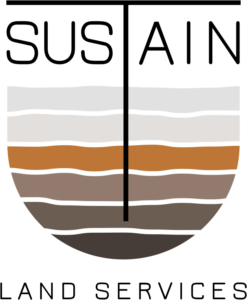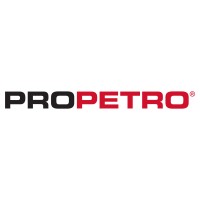The Senior Energy Enegineer will design, develop, or evaluate energy-related projects or programs to reduce energy costs or improve energy efficiency during the designing, building, or remodeling stages of construction. May specialize in electrical systems; heating, ventilation, and air-conditioning (HVAC) systems; green buildings; lighting; air quality; or energy procurement. They will also identify and recommend energy savings strategies to achieve more energy-efficient operation.
Responsibilities:
•Conduct ASHRAE I, II, III energy audits to evaluate energy use, costs, or conservation measures. Monitor industrial energy consumption or management.
•Monitor energy related design or construction issues, such as energy engineering, energy management, or sustainable design.
•Inspect or monitor energy systems, including heating, ventilating, and air conditioning (HVAC) or daylighting systems to determine energy use or potential energy savings.
•Advise clients or colleagues on topics such as climate control systems, energy modeling, data logging, sustainable design, or energy auditing.
•Analyze, interpret, or create graphical representations of energy data, using engineering software.
•Identify energy savings opportunities and make recommendations to achieve more energy efficient operation.
- Analyze energy usage data.
- Advise customers and peers regarding green practices or environmental concerns.
•Manage the development, design, or construction of energy conservation projects to ensure acceptability of budgets and time lines, conformance to federal and state laws, or adherence to approved specifications.
- Direct energy production or management activities.
•Perform energy modeling, measurement, verification, commissioning, or retro-commissioning.
- Create models of engineering designs or methods.
•Oversee design or construction aspects related to energy such as energy engineering, energy management, and sustainable design.
- Direct energy production or management activities.
•Conduct job-site observations, field inspections, or sub-metering to collect data for energy conservation analyses.
- Research energy production, use, or conservation.
•Review architectural, mechanical, or electrical plans and specifications to evaluate energy efficiency or determine economic, service, or engineering feasibility.
- Evaluate plans or specifications to determine technological or environmental implications.
•Inspect or monitor energy systems, including heating, ventilating, and air conditioning (HVAC) or daylighting systems to determine energy use or potential energy savings.
- Inspect equipment or systems.
•Evaluate construction design information such as detail and assembly drawings, design calculations, system layouts and sketches, or specifications.
- Evaluate designs or specifications to ensure quality.
•Direct the work of contractors or staff in the implementation of energy management projects.
- Direct energy production or management activities.
•Prepare project reports and other program or technical documentation.
- Prepare technical or operational reports.
•Analyze, interpret, or create graphical representations of energy data, using engineering software.
- Create models of engineering designs or methods.
•Make recommendations regarding energy fuel selection.
- Recommend technical design or process changes to improve efficiency, quality, or performance.
•Review or negotiate energy purchase agreements.
- Purchase materials, equipment, or other resources.
•Provide consultation to clients or other engineers on topics such as climate control systems, energy modeling, data logging, energy management control systems, lighting or daylighting design, sustainable design, and energy auditing.
- Advise others regarding green practices or environmental concerns.
•Train personnel or clients on topics such as energy management.
- Train personnel on proper operational procedures.
•Promote awareness or use of alternative or renewable energy sources.
- Perform marketing activities.
•Consult with construction or renovation clients or other engineers on topics such as Leadership in Energy and Environmental Design (LEED) or Green Buildings.
- Advise others regarding green practices or environmental concerns.
•Conduct research or collect data on renewable or alternative energy systems or technologies such as solar thermal and photovoltaic energy.
- Research design or application of green technologies.
•Any other tasks deemed necessary/appropriate by the supervisor
Qualifications:
•Ideally Master’s degree in Engineering (Mechanical, Energy, Sustainability). Other engineering disciplines will be considered.
•7-10 years of experience in analyzing building energy efficiency technologies and controls and specifying upgrades to improve the energy performance of building systems. Strong knowledge of applicable IESNA/ASHRAE design codes, design standards, and specification requirements, with the ability to interpret and apply them to specific project scopes.
•Experience with the design and construction of energy efficiency or clean energy projects in diverse buildings that vary in age, size and use.
•Experience in the energy field, such as energy efficiency, distributed energy generation/combined heat and power, project economics/rate analysis, project design, renewable energy, HVAC, central heating and cooling plants.
•Familiarity with energy saving strategies, experience calculating the associated energy savings in steam, refrigeration, HVAC, lighting systems, turbines, air compressors, motors, and other commercial, institutional, or industrial systems.
•Familiarity with energy usage, energy cost savings, and avoided greenhouse gas emissions calculation methodologies. • Knowledge of energy related softwares such as AutoCAD, eQUEST, EQUIP, TREAT is preferred.
•Certified Energy Manager (CEM); Certified Energy Auditor (CEA); Certified Building Commissioning Professional (CBCP); Existing Building Commissioning Professional (EBCP); Certified Measurement & Verification Professional (CMVP); Engineer in Training (EIT); Professional Engineer (PE), Building Energy Modeling Professional (BEMP), Building Operator Certification - Level 1 credentials.
•Possess safety industry certifications. Minimum OSHA 30.
•Strong written and verbal communication skills and proficient computer skills, including Microsoft applications. • Strong technical, analytical and quantitative skills, and a demonstrated capability for analysis and strategic thinking.
•High level of productivity: able to meet and even exceed deadlines and handle multiple responsibilities simultaneously.
•Strong technical writing skills.
•Willingness and ability to succeed in a collaborative, team-based environment.
•Ability to occasionally lift and/or move up to 25 pounds.
Local travel required within the tri-state area.






























